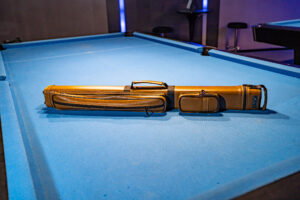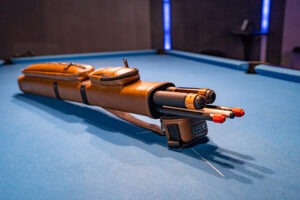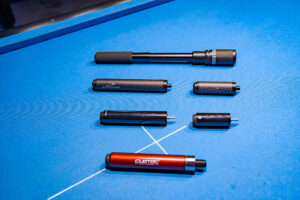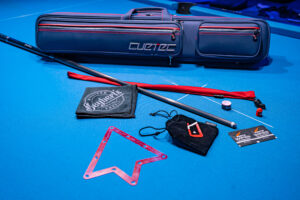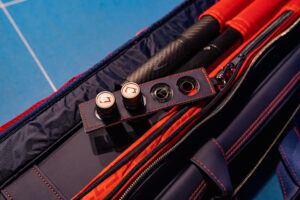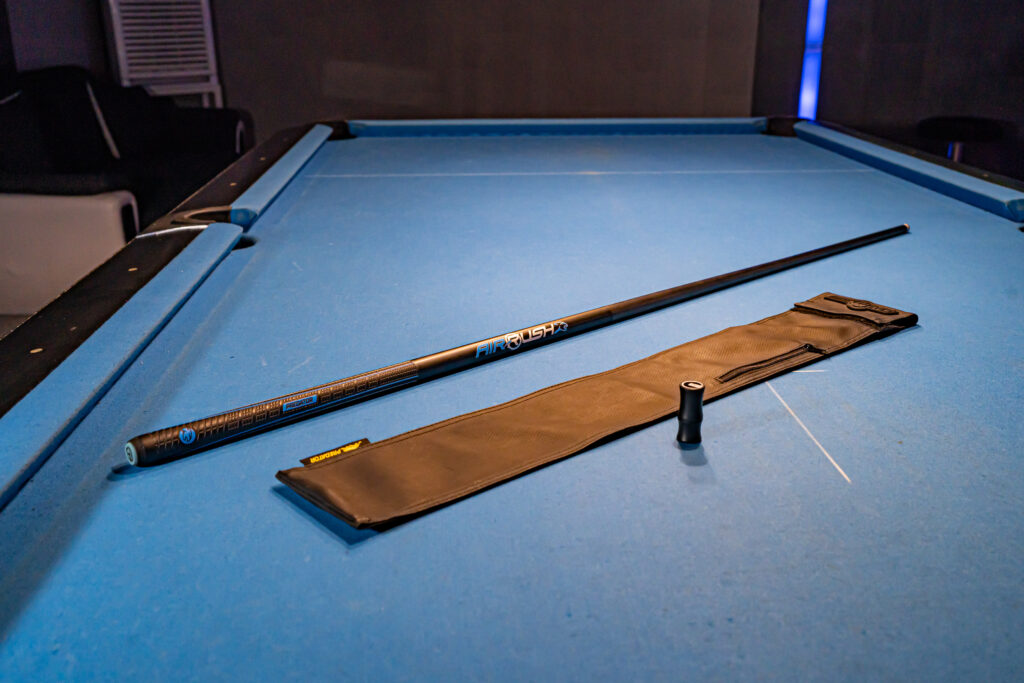
Predator Air Rush Jump Cue - Sport Wrap with Predator Revo Soft Pool Cue Case
Soft pool cue cases are an essential accessory for any serious billiards player, offering both advantages and disadvantages that can impact gameplay. Understanding the strengths and weaknesses of these cases is crucial for selecting the right equipment to enhance your performance on the table.
Advantages of Soft Pool Cue Cases:
- Portability: Soft pool cue cases are lightweight and easy to transport, making them ideal for players who frequently travel to tournaments or play at various locations. Professional players like Shane Van Boening and Allison Fisher often rely on soft cases for their convenience and mobility.
- Protection: Despite their lightweight design, soft pool cue cases provide adequate protection for cues against scratches, dings, and minor impacts. The padded interior cushions the cues during transport, reducing the risk of damage and preserving their integrity.
- Affordability: Soft pool cue cases are generally more affordable than their hard counterparts, making them accessible to players on a budget. This affordability allows players to invest in quality cases without breaking the bank, ensuring their cues are adequately protected without compromising performance.
Disadvantages of Soft Pool Cue Cases:
- Limited Protection: While soft pool cue cases offer decent protection against minor impacts, they may not provide sufficient protection against heavy impacts or extreme conditions. Players who frequently travel or play in crowded environments may require additional protection for their cues.
- Durability: Soft pool cue cases are prone to wear and tear over time, especially with frequent use and exposure to the elements. The fabric exterior may tear or fray, compromising the case’s structural integrity and reducing its lifespan.
- Limited Storage: Soft pool cue cases typically have limited storage space compared to hard cases, which may pose challenges for players with multiple cues or accessories. Professional players like Jeanette Lee and Efren Reyes often opt for hard cases with ample storage to accommodate their equipment.
Comparison to Hard Pool Cue Cases:
While soft pool cue cases offer portability and affordability, hard pool cue cases provide superior protection and durability. Hard cases feature rigid exteriors made from materials like aluminum or ABS plastic, offering unmatched resistance to impacts, moisture, and temperature fluctuations. Professional players such as Jeanette Lee and Shane Van Boening often prefer hard cases for their exceptional protection and storage capacity, allowing them to transport multiple cues and accessories safely. However, hard cases are typically heavier and bulkier than soft cases, making them less convenient for travel. Ultimately, the choice between soft and hard pool cue cases depends on your priorities regarding protection, portability, and storage needs.
Pro Tips from Professional Players:
- Use Protective Sleeves: Professional players recommend using protective cue sleeves or wraps inside soft pool cue cases to provide an additional layer of protection for cues during transport.
- Invest in Quality Materials: When selecting a soft pool cue case, prioritize cases made from durable materials such as nylon or polyester with reinforced stitching for added durability and longevity.
- Regular Maintenance: To prolong the lifespan of your soft pool cue case, perform regular maintenance such as cleaning the exterior with a damp cloth, inspecting for signs of wear, and repairing any damages promptly.
Conclusion:
In conclusion, soft pool cue cases offer a convenient and affordable solution for cue transportation and protection, with advantages including portability, protection, and affordability. However, they also have limitations such as limited protection, durability, and storage space. By understanding these strengths and weaknesses and implementing pro tips from professional players, you can maximize the benefits of soft pool cue cases while mitigating their drawbacks for optimal performance on the billiards table.

